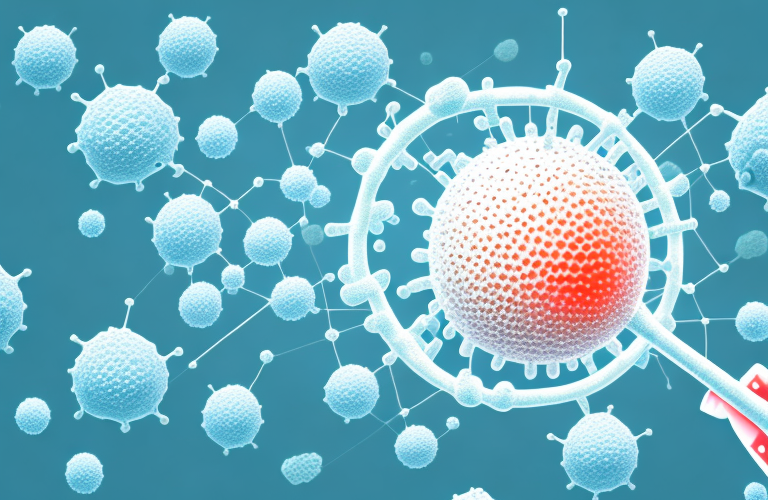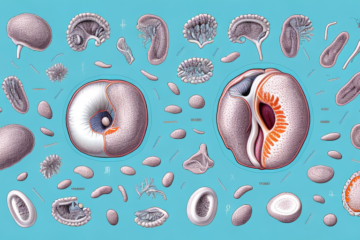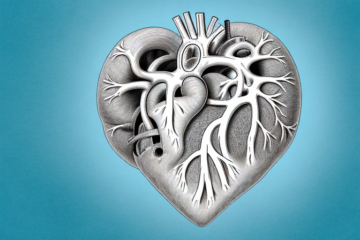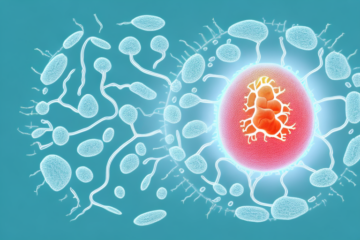Genital warts are a common sexually transmitted infection (STI) caused by the human papillomavirus (HPV). In this article, we’ll explore everything you need to know about genital warts, including their causes, symptoms, treatments, and more.
What are genital warts?
Genital warts are small, raised bumps that appear on the genitals, anus, or surrounding skin. They can vary in size and shape and can appear alone or in clusters. If left untreated, genital warts can multiply and grow larger over time.
Genital warts are caused by the human papillomavirus (HPV), which is a sexually transmitted infection. HPV can be spread through skin-to-skin contact during sexual activity, including vaginal, anal, and oral sex. It is important to get regular check-ups with a healthcare provider and practice safe sex to reduce the risk of contracting or spreading HPV and genital warts.
What causes genital warts?
Genital warts are caused by the human papillomavirus (HPV), which is transmitted through sexual contact with an infected partner. Any sexually active person can contract genital warts, and they are more common in people under the age of 30.
There are over 100 different types of HPV, but only a few of them cause genital warts. The virus can be spread through vaginal, anal, or oral sex, and can also be passed from a mother to her baby during childbirth. It is important to note that not everyone who contracts HPV will develop genital warts, as some people’s immune systems are able to fight off the virus.
Genital warts can be treated with topical medications, such as creams or ointments, or with procedures such as cryotherapy (freezing the warts) or surgical removal. It is also important to practice safe sex by using condoms and getting regular screenings for sexually transmitted infections, as HPV can lead to more serious health issues such as cervical cancer in women.
How common are genital warts?
Genital warts are one of the most common STIs. According to the Centers for Disease Control and Prevention (CDC), there are approximately 360,000 new cases of genital warts each year in the United States alone.
Genital warts are caused by the human papillomavirus (HPV), which is a very common virus. In fact, it is estimated that up to 80% of sexually active people will contract HPV at some point in their lives. However, not all types of HPV cause genital warts, and many people who have the virus may not even know it because they do not experience any symptoms. It is important to get regular STI testing to detect and treat any infections, including HPV, to prevent the spread of the virus and potential health complications.
Who is at risk for genital warts?
Anyone who is sexually active is at risk for genital warts. However, certain factors can increase your risk, including having unprotected sex, having multiple sexual partners, and having a weakened immune system.
It is important to note that genital warts are caused by the human papillomavirus (HPV), which is a very common sexually transmitted infection. In fact, it is estimated that up to 80% of sexually active individuals will contract HPV at some point in their lives. While most cases of HPV do not result in genital warts or other symptoms, it is still important to practice safe sex and get regular check-ups with your healthcare provider to monitor your sexual health.
What are the symptoms of genital warts?
The symptoms of genital warts include small, raised bumps on the genitals or anus, itching or discomfort in the affected area, and bleeding during intercourse.
It is important to note that not all individuals with genital warts experience symptoms. In some cases, the warts may be too small to be visible or may be located in areas that are not easily noticed. Additionally, symptoms may not appear until several weeks or months after the initial infection. It is recommended that individuals who are sexually active get regular check-ups with their healthcare provider to screen for sexually transmitted infections, including genital warts.
How are genital warts diagnosed?
A healthcare provider can diagnose genital warts by conducting a visual examination of the affected area. In some cases, they may also perform a biopsy to confirm the presence of the human papillomavirus.
It is important to note that not all cases of genital warts are visible to the naked eye. In some instances, a healthcare provider may use a special solution to make the warts more visible or may use a colposcope to examine the area more closely. Additionally, if a person has been exposed to someone with genital warts or has engaged in high-risk sexual behavior, they may be advised to undergo regular screenings to detect any potential infections early on.
Can genital warts be prevented?
The best way to prevent genital warts is to practice safe sex. This includes using condoms and getting vaccinated against the human papillomavirus (HPV).
It is also important to limit your number of sexual partners and to get regular check-ups with your healthcare provider. If you do have genital warts, it is important to avoid sexual contact until the warts have been treated and have disappeared.
In addition to safe sex practices, maintaining a healthy lifestyle can also help prevent genital warts. Eating a balanced diet, exercising regularly, and avoiding smoking can all help boost your immune system and reduce your risk of contracting HPV.
What are the treatment options for genital warts?
There are several different treatment options for genital warts, including topical treatments, surgical options, and home remedies. Let’s explore each of these in more detail.
Topical treatments involve applying medication directly to the warts. This can include creams, gels, or solutions that contain chemicals that help to destroy the warts. Some common topical treatments include imiquimod, podofilox, and trichloroacetic acid.
Topical treatments for genital warts
Topical treatments for genital warts include over-the-counter creams and gels that contain salicylic acid or imiquimod. These medications work by destroying the cells of the warts and boosting the immune system to fight the virus.
It is important to note that while topical treatments can be effective in treating genital warts, they may not work for everyone. In some cases, a healthcare provider may recommend other treatment options such as cryotherapy, surgical removal, or prescription medications. It is also important to practice safe sex and inform sexual partners if you have been diagnosed with genital warts to prevent the spread of the virus.
Surgical options for genital wart removal
If topical treatments are not effective, a healthcare provider may recommend one of several surgical options for removing genital warts. These include cryotherapy, electrocautery, laser surgery, and surgical excision.
Cryotherapy involves freezing the warts with liquid nitrogen. This procedure is typically done in a healthcare provider’s office and may require multiple treatments. Electrocautery involves burning the warts off with an electric current. Laser surgery uses a high-energy beam of light to destroy the warts. Surgical excision involves cutting the warts out with a scalpel.
It is important to note that while surgical options can effectively remove genital warts, they do not cure the underlying human papillomavirus (HPV) infection that causes them. It is still possible to transmit HPV to sexual partners even after the warts have been removed. Practicing safe sex and getting regular check-ups with a healthcare provider can help reduce the risk of HPV transmission and detect any new warts early on.
Home remedies for treating genital warts
There are also several home remedies that may be effective in treating genital warts, such as apple cider vinegar, tea tree oil, and garlic. While these remedies are generally considered safe, it’s important to discuss them with a healthcare provider to ensure they don’t interfere with other treatment options.
One popular home remedy for genital warts is the use of duct tape. This involves covering the wart with a small piece of duct tape for several days, then removing the tape and soaking the area in warm water before gently rubbing the wart with an emery board. This process is repeated for several weeks until the wart disappears.
Another home remedy that has shown promise in treating genital warts is the use of green tea. Green tea contains compounds that have antiviral properties and may help to reduce the size and appearance of warts. To use green tea as a treatment, simply steep a green tea bag in hot water for a few minutes, then apply the cooled tea to the affected area using a cotton ball or swab.
How long does it take to treat genital warts?
The length of time it takes to treat genital warts depends on several factors, including the size and location of the warts and the type of treatment used. In some cases, it may take several weeks or months to fully remove the warts.
It is important to note that while treatment can remove visible warts, the virus that causes genital warts, human papillomavirus (HPV), may still be present in the body. This means that even after treatment, there is a risk of the warts returning or spreading to others through sexual contact.
Additionally, some treatments for genital warts can cause discomfort or side effects, such as burning or itching. It is important to discuss potential side effects with a healthcare provider and to follow their instructions for care and follow-up appointments.
Are there any complications associated with genital warts?
While most people with genital warts experience no long-term complications, in rare cases, they can lead to serious health problems, such as cervical cancer or recurrent respiratory papillomatosis (RRP). It’s important to seek treatment for genital warts as soon as possible to reduce the risk of complications.
Additionally, genital warts can cause emotional distress and affect a person’s sexual health and relationships. It’s important to communicate openly with sexual partners about any history of genital warts and to practice safe sex to prevent the spread of the virus that causes them.
How to talk to your partner about having genital warts
Talking to your partner about a diagnosis of genital warts can be difficult, but it’s important to be honest and open. Start by informing them of your diagnosis and explaining the risks of transmission. Encourage them to get tested and seek treatment if necessary.
It’s important to remember that having genital warts does not mean the end of your sex life. With proper treatment and precautions, it is possible to continue having a healthy and fulfilling sexual relationship with your partner. However, it’s important to be upfront about your diagnosis and take steps to prevent transmission.
Additionally, it’s important to prioritize your own emotional well-being during this conversation. It’s normal to feel anxious or embarrassed about discussing a sensitive topic like genital warts with your partner. Consider seeking support from a therapist or counselor to help you navigate this conversation and manage any feelings of shame or stigma.
Living with genital warts: Coping strategies and support
Living with genital warts can be challenging, but there are several coping strategies and sources of support available. Talk to a healthcare provider or counselor about strategies for managing stress and anxiety related to the condition. There are also many online support groups and resources available for people with genital warts.
Overall, genital warts are a common and treatable STI. With proper treatment and prevention, it is possible to manage the condition and maintain a healthy sex life.
It is important to note that genital warts can have a significant impact on a person’s mental health and self-esteem. It is common for individuals with genital warts to feel ashamed or embarrassed, which can lead to social isolation and relationship difficulties. Seeking support from a therapist or counselor can be helpful in addressing these emotional challenges.
In addition to seeking emotional support, it is important to take steps to prevent the spread of genital warts. This includes practicing safe sex, getting regular STI screenings, and informing sexual partners about the condition. By taking these precautions, individuals with genital warts can reduce the risk of transmitting the virus to others and protect their own health.










